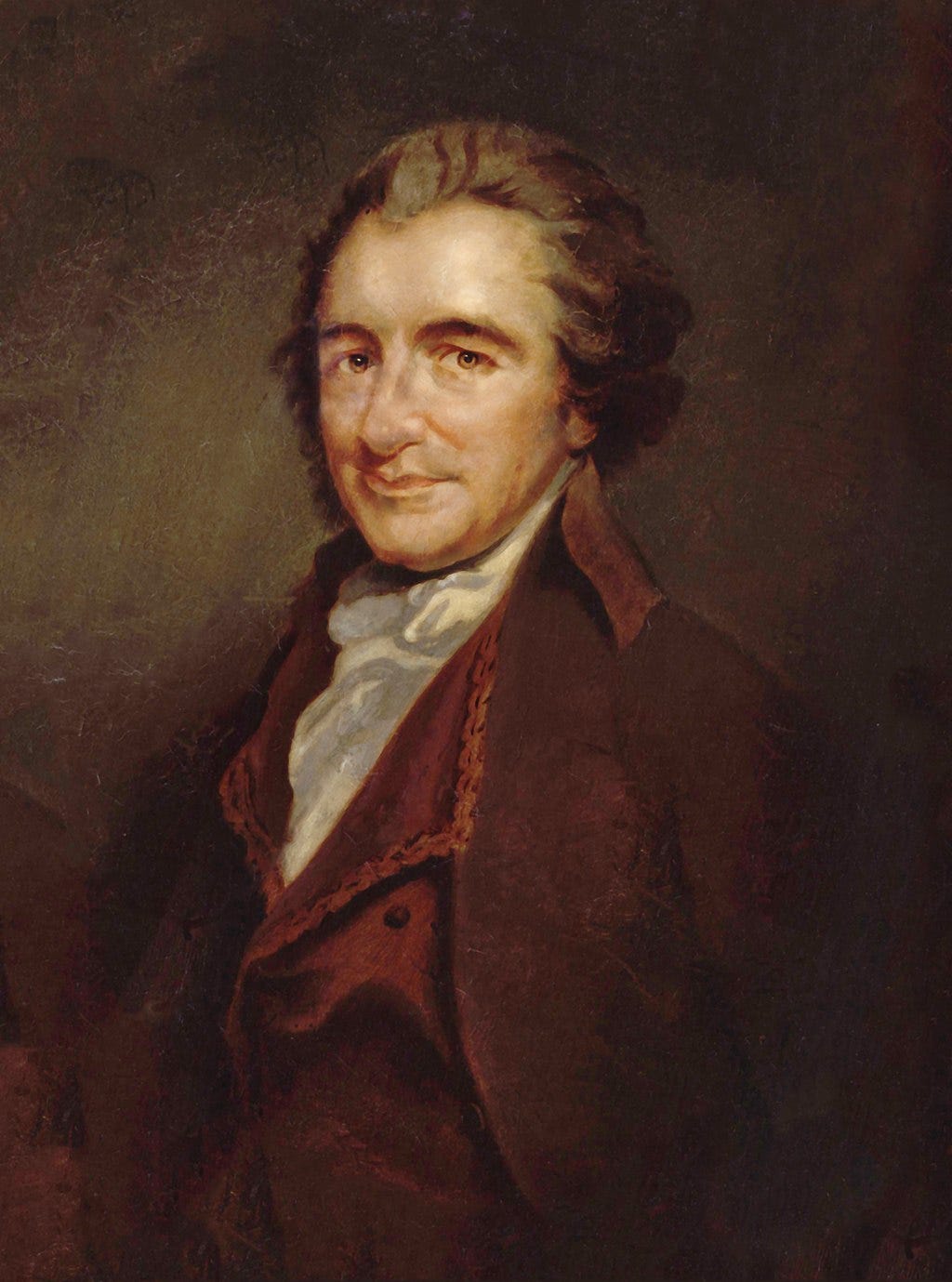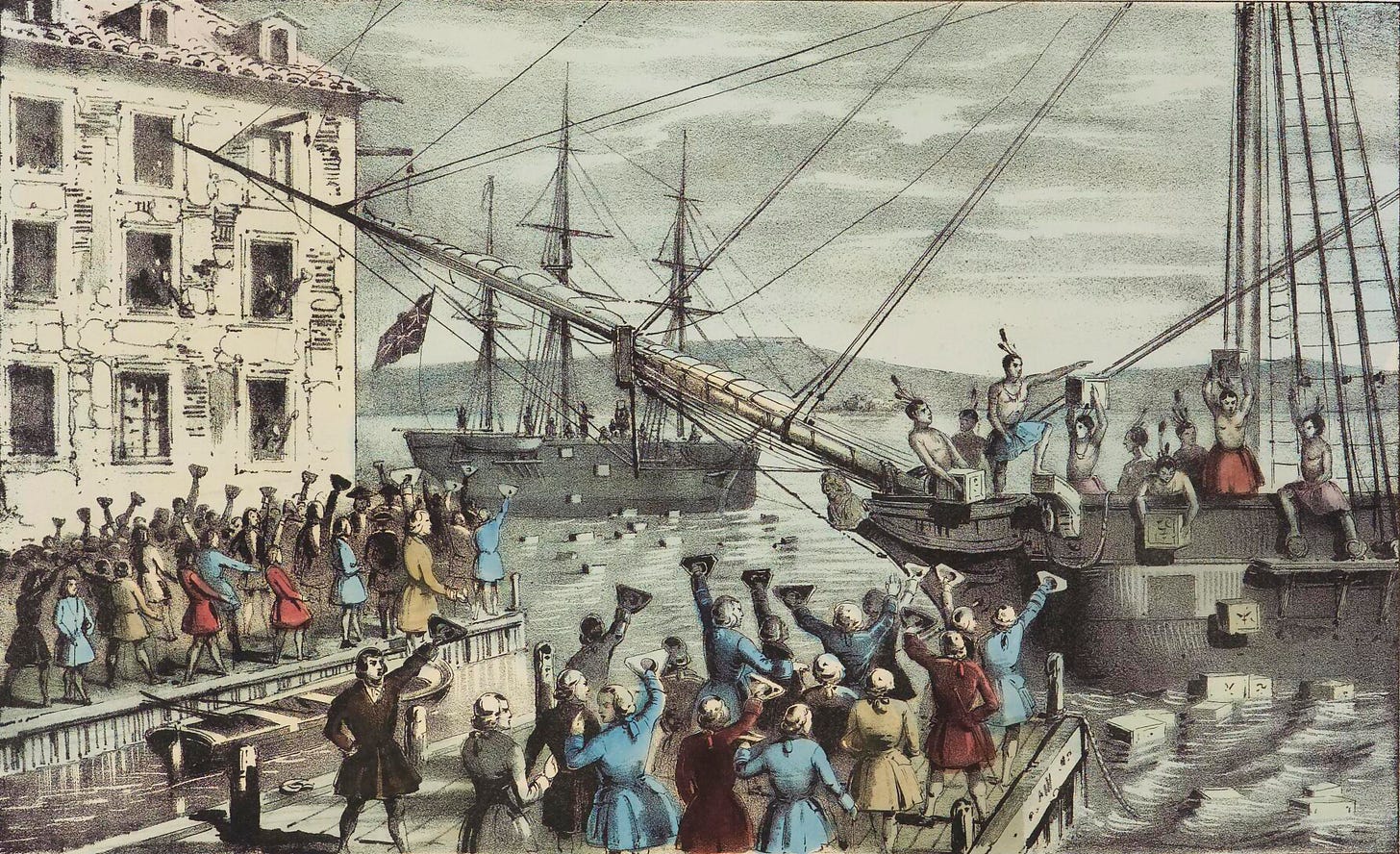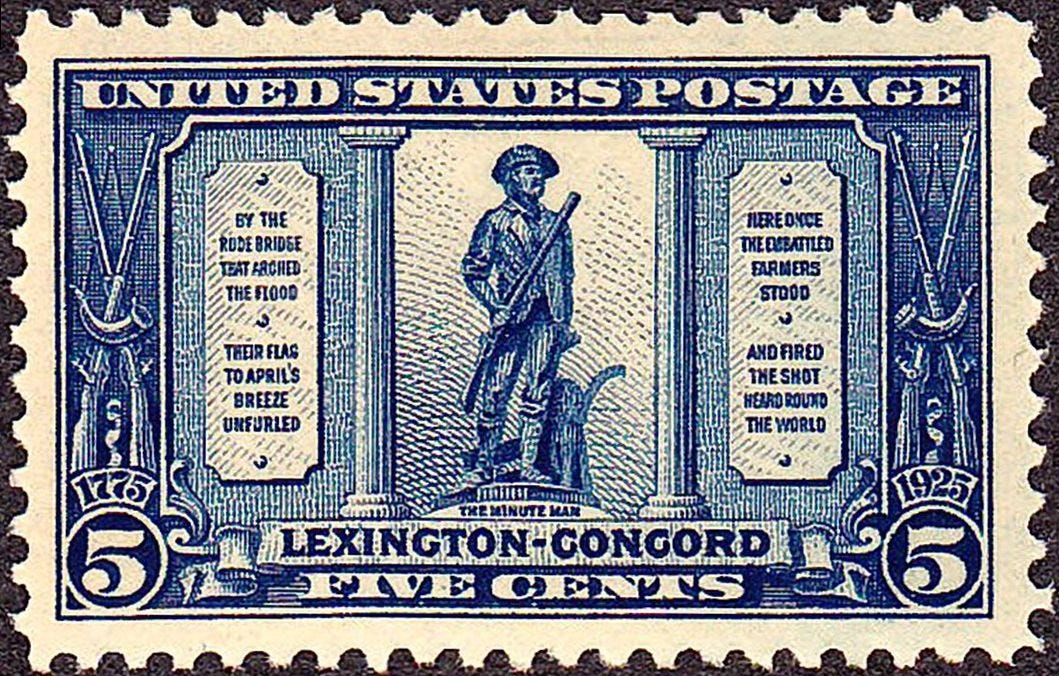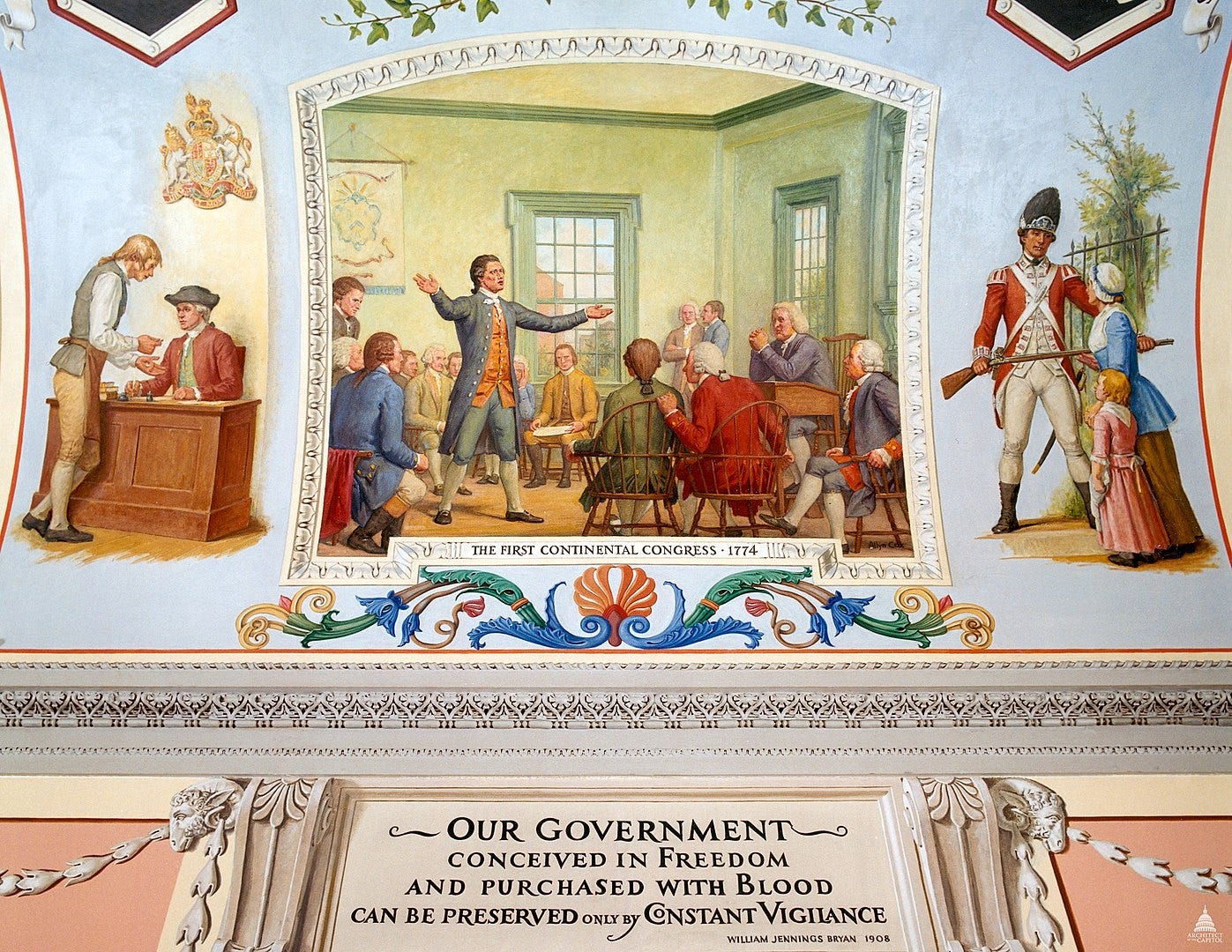From Grumbling to Gathering
Part 2: Veterans Fuel the Flames of Revolution
The embers of discontent amongst veterans continued to smolder.
Firebrand leaders like Samuel Adams, a fiery organizer, and John Adams, a skilled lawyer, recognized this burning resentment. These men weren't veterans themselves, but they understood the power veterans wielded. They channeled the veterans' anger into calls for colonial unity, leveraging their experiences and grievances to rally support for the revolutionary cause.

Meanwhile, a new voice emerged to shake the very foundations of British authority. Thomas Paine, a recent arrival from England, published his electrifying pamphlet, Common Sense. In clear, concise prose, Paine laid out a powerful argument for independence. Veterans, many of whom had likely struggled to understand complex political theories, found his message refreshingly direct. Here was a man speaking their language, echoing their yearning for self-determination. "Common Sense" became a runaway bestseller, its arguments resonating deeply with those who had bled for their communities and yearned for a government that truly represented them.
“Men who look upon themselves born to reign, and others to obey, soon grow insolent; selected from the rest of mankind their minds are early poisoned by importance; and the world they act in differs so materially from the world at large, that they have but little opportunity of knowing its true interests, and when they succeed to the government are frequently the most ignorant and unfit of any throughout the dominions.”
― Thomas Paine, Common Sense
But fiery words and persuasive pamphlets wouldn't suffice. Acts of defiance were needed to demonstrate the colonists' resolve. In 1773, the now-legendary Boston Tea Party erupted. While the exact identities of the participants remain shrouded in mystery, it's likely that veterans played a role in this audacious act of rebellion.

Their experience with weaponry and their willingness to take risks made them valuable assets in such an operation. The Intolerable Acts, Britain's heavy-handed response to the Tea Party, only served to further alienate the colonists. These punitive measures backfired spectacularly, solidifying the colonists' resolve and pushing them closer to the brink of revolution.
In the face of escalating tensions, veterans once again took center stage. Local militias, comprised in part of men hardened by the French and Indian War, began drilling with renewed fervor. These Minutemen, as they were known, were ready to answer the call at a moment's notice. Their experience in combat proved invaluable, making them a formidable force despite lacking formal military training.

The need for a unified colonial response became increasingly clear. In 1774, the First Continental Congress convened in Philadelphia. Delegates from across the colonies, many with military backgrounds themselves, gathered to discuss their grievances and chart a course forward. Veterans' voices were now part of the conversation, their firsthand accounts of British injustices fueling the fire of resistance.

The fight for independence was no longer just a simmering discontent; it was a wellspring of determination. Veterans, forged in the crucible of past conflicts, became the backbone of this growing resistance. Their experiences, their courage, and their unwavering commitment to liberty would shape the course of the American Revolution.
In the next part of our series, we'll delve deeper into the early battles of the Revolution. We'll explore how veterans, with their battlefield experience and unwavering resolve, played a crucial role in securing those hard-fought victories.
P.S. Share your thoughts! Did you have any ancestors who fought in the Revolution?
